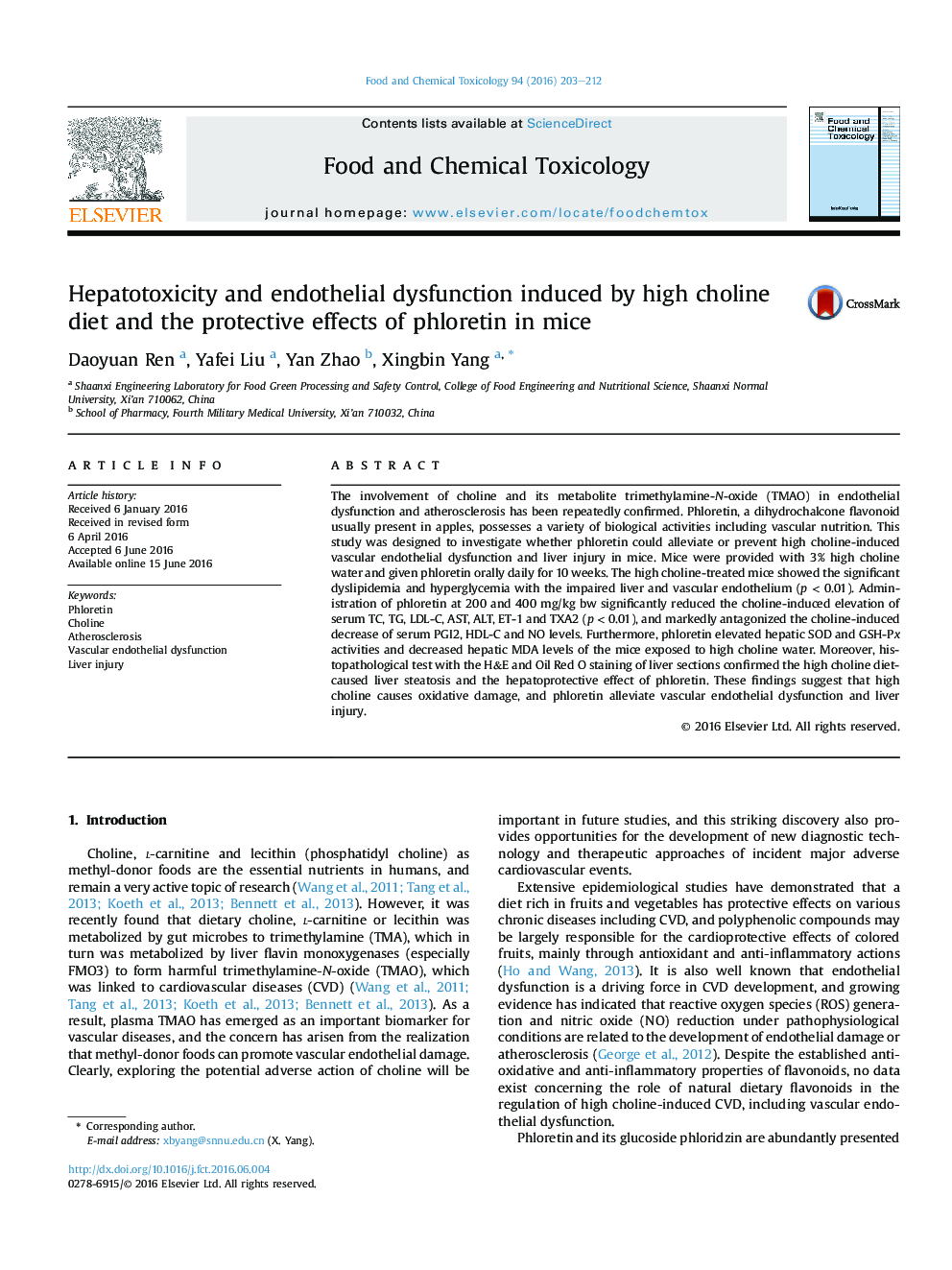| Article ID | Journal | Published Year | Pages | File Type |
|---|---|---|---|---|
| 5849379 | Food and Chemical Toxicology | 2016 | 10 Pages |
Abstract
The involvement of choline and its metabolite trimethylamine-N-oxide (TMAO) in endothelial dysfunction and atherosclerosis has been repeatedly confirmed. Phloretin, a dihydrochalcone flavonoid usually present in apples, possesses a variety of biological activities including vascular nutrition. This study was designed to investigate whether phloretin could alleviate or prevent high choline-induced vascular endothelial dysfunction and liver injury in mice. Mice were provided with 3% high choline water and given phloretin orally daily for 10 weeks. The high choline-treated mice showed the significant dyslipidemia and hyperglycemia with the impaired liver and vascular endothelium (p < 0.01). Administration of phloretin at 200 and 400 mg/kg bw significantly reduced the choline-induced elevation of serum TC, TG, LDL-C, AST, ALT, ET-1 and TXA2 (p < 0.01), and markedly antagonized the choline-induced decrease of serum PGI2, HDL-C and NO levels. Furthermore, phloretin elevated hepatic SOD and GSH-Px activities and decreased hepatic MDA levels of the mice exposed to high choline water. Moreover, histopathological test with the H&E and Oil Red O staining of liver sections confirmed the high choline diet-caused liver steatosis and the hepatoprotective effect of phloretin. These findings suggest that high choline causes oxidative damage, and phloretin alleviate vascular endothelial dysfunction and liver injury.
Related Topics
Life Sciences
Agricultural and Biological Sciences
Food Science
Authors
Daoyuan Ren, Yafei Liu, Yan Zhao, Xingbin Yang,
